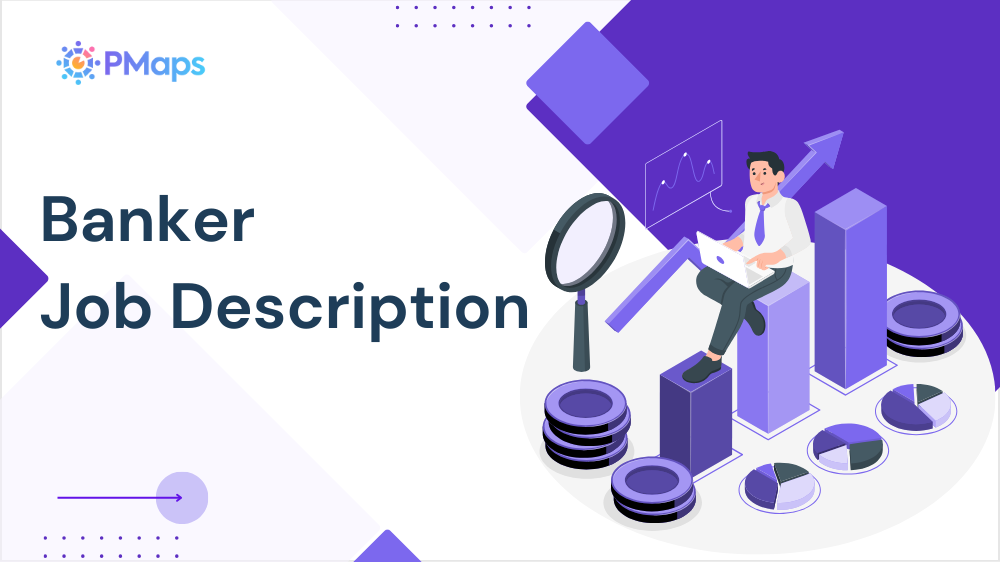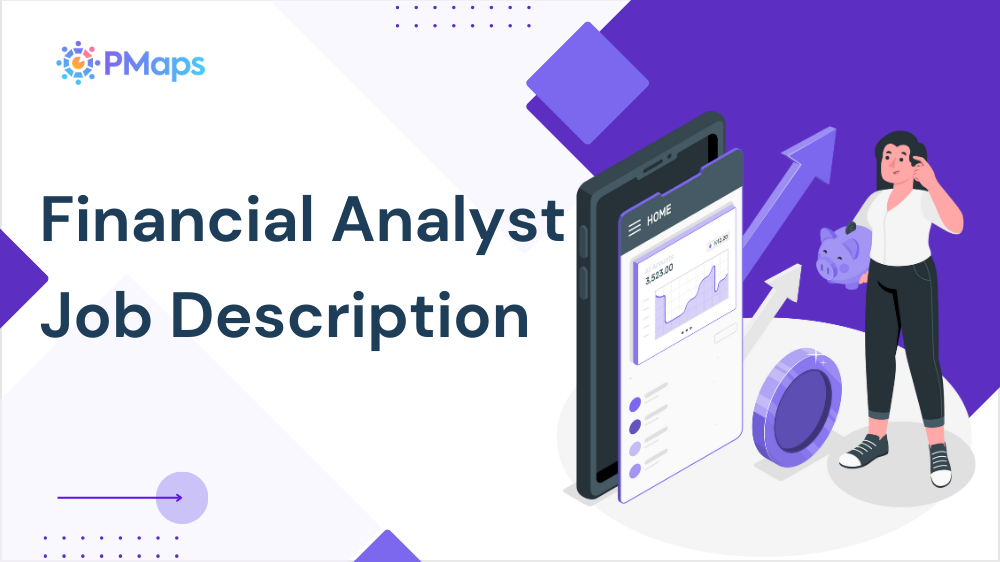
A well-defined banker job description is essential for recruiting professionals who can manage client relationships, streamline transactions, and maintain financial compliance with precision. As part of the finance team, bankers play a critical role in advising clients, cross-selling products, and ensuring seamless day-to-day banking operations. This banker job profile offers a flexible framework to attract candidates who are skilled in service, sales, and strategic financial planning—all within a regulated environment.
Banker Roles & Responsibilities
The role of a banker extends beyond traditional transactions when viewed in the light of competition today. You need bankers who not only manage financial operations but also build lasting relationships with clients.
Key Responsibilities:
- Client Relationship Management: Serve as a trusted point of contact for clients, offering personalized banking guidance.
- Account Services: Assist customers with opening, managing, and closing various types of bank accounts.
- Financial Advisory: Recommend relevant banking products, loan options, and financial services based on customer needs.
- Transaction Processing: Handle deposits, withdrawals, transfers, and check processing with accuracy.
- Compliance & Documentation: Ensure all activities follow KYC, AML, and regulatory protocols.
- Cross-Selling: Identify opportunities to promote additional financial services, insurance, or credit products.
- Record Maintenance: Keep accurate records of interactions, transactions, and customer queries.
- Issue Resolution: Respond promptly to client inquiries, resolve account discrepancies, and escalate where necessary.
Hiring for your Banking team? Discover professionals who mix precision with trust.

Objective of the Banker Role
The bankers are a financial guide, trust-builder, and business enabler. The core objective of a banker job role is to bridge customer needs with banking solutions while upholding financial integrity and compliance. Bankers contribute directly to business growth by nurturing long-term client relationships, improving retention, and optimizing the delivery of financial services.
Key Objectives:
- Translate customer goals into actionable banking solutions.
- Build ongoing client relationships that foster loyalty and cross-sell opportunities.
- Maintain compliance with banking regulations and internal protocols.
- Support operational excellence through accuracy, timeliness, and service consistency.
- Contribute to branch performance by achieving personal and team-based KPIs.
Qualification and Skill Requirements for Bankers
A strong bank employee job description should highlight not just financial literacy, but also interpersonal competence and compliance discipline. These banker job requirements ensure consistency in performance, customer trust, and adherence to regulatory standards.
Core Qualifications & Skills:
- Educational Background: Bachelor's degree in finance, business administration, or a related field; advanced certifications (e.g., CFA, NISM) are advantageous.
- Industry Experience: 2–5 years in retail, corporate, or investment banking, with proven client-handling exposure.
- Communication Skills: Ability to clearly explain financial products and build rapport with diverse clientele.
- Regulatory Knowledge: Familiarity with KYC norms, AML regulations, and RBI/banking compliance procedures.
- Sales Acumen: Demonstrated ability to recommend and upsell banking products aligned with client needs.
- Analytical Thinking: Comfort with data, account trends, and risk flags; experience with financial tools is a plus.
- Tech Proficiency: Knowledge of core banking systems, CRM tools, and digital banking platforms.
- Ethical Judgment: High standards of integrity, confidentiality, and decision-making in customer dealings.
Questions that bring ethics and detail orientation into the spotlight.

Perks and Benefits of the Banker Role
A compelling banker job description doesn’t just define expectations—it also reflects the employer’s investment in its people. Competitive benefits signal stability, trust, and growth. These perks help you attract qualified candidates who value career development and workplace balance.
What Bankers Can Expect:
- Structured Career Path: Progression into senior roles such as Relationship Manager, Branch Manager, or Credit Analyst.
- Performance Incentives: Quarterly bonuses, target-based rewards, and internal recognition programs.
- Professional Development: Sponsored certifications, industry workshops, and leadership training modules.
- Wellness Initiatives: Medical insurance, mental health programs, and ergonomic workspace support.
- Work-Life Support: Defined working hours, optional hybrid models, and generous leave policies.
- Inclusive Culture: Ethical, compliance-driven, and diverse workplace policies.
Tips for Employers to Craft an Effective Banker Job Description
In the finance sector, vague job ads won’t attract high-performing talent. A successful banker job description must reflect the compliance standards, performance expectations, and client-facing nature unique to banking. Here's how to make yours more precise and effective:
Tailored JD Tips for Hiring Bankers:
- Specify the Banking Tier: Clearly state whether the role is in retail, commercial, private, or investment banking. Each has distinct expectations.
- Highlight Regulatory Knowledge: Include familiarity with KYC, AML, RBI norms (or relevant national frameworks) as non-negotiable.
- Quantify Performance Metrics: Mention expected sales targets, portfolio size, NPA management goals, or daily transaction volumes.
- Clarify Client Segments: State whether bankers will serve HNIs, SMEs, walk-in customers, or institutional clients.
- Mention Tech Stack: Specify systems like Finacle, Oracle Flexcube, or CRM tools if used—this helps filter skilled applicants faster.
- Point to Compliance Culture: Reinforce the importance of ethical decision-making, audit readiness, and data confidentiality.








